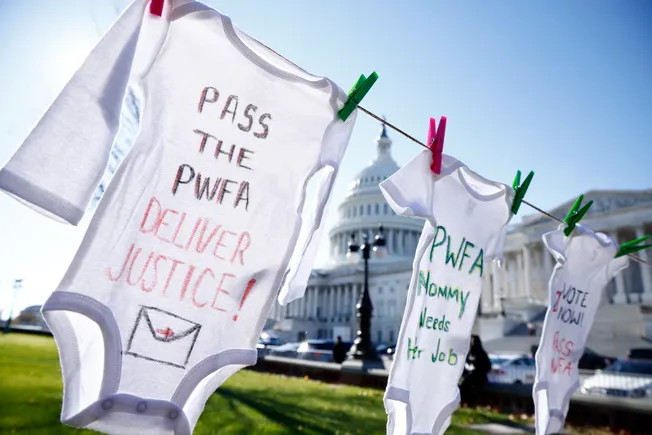Dive Brief:
- The 5th U.S. Circuit Court of Appeals has reversed a 2024 Texas district court decision in favor of the state that blocked enforcement of the Pregnant Workers Fairness Act, ruling the district was wrong in its interpretation of the U.S. Constitution’s quorum requirements.
- In Texas v. Bondi, Texas argued the PWFA— part of the 2023 Consolidated Appropriations Act — was passed unconstitutionally, as less than a majority was physically present to vote and more than half of votes were passed by proxy. The U.S. District Court for the Northern District of Texas agreed.
- The 5th Circuit reversed Aug. 15, holding that the enrolled-bill rule, a U.S. Supreme Court precedent from 1892 that prevents the courts from invalidating how Congress passes a bill, applied. The court also ruled that the Constitution’s Quorum Clause does not require physical presence.
Dive Insight:
The PWFA requires employers with 15 or more employees to provide reasonable accommodations for job applicants and employees with known limitations related to pregnancy, childbirth and related conditions.
The bill, which became the PWFA, was first introduced in 2012 and reintroduced frequently throughout the years. It finally gained traction in late 2022, when it was added to the 2023 Consolidated Appropriations Act. It passed as part of the spending bill and was signed into law by President Joe Biden on Dec. 29, 2022.
The law, which went into effect June 27, 2023, has been heavily challenged since the U.S. Equal Employment Opportunity Commission released a final rule in April 2024 concluding that abortion is included as a protected medical condition under the law. While current Acting Chair Andrea Lucas has publicly opposed this interpretation, she’s also acknowledged she cannot rescind or modify the final rule without an agency quorum.
While EEOC has lacked a quorum since President Donald Trump fired multiple Democratic Commissioners, he named Brittany Panuccio to a seat in May, setting the stage for the agency to regain a quorum. Panuccio’s nomination is pending Senate confirmation.
In the meantime, states and organizations have pressed the courts for exemption from EEOC’s interpretation of the law, with some success. In May, a federal judge struck down a portion of EEOC’s rule requiring employers to reasonably accommodate workers who elect to have an abortion. The U.S. Conference of Catholic Bishops, a plaintiff in the case, last month asked the court to block the rule’s application to abortions that stem from treatment of medical conditions related to pregnancy as well.






Leave a Reply